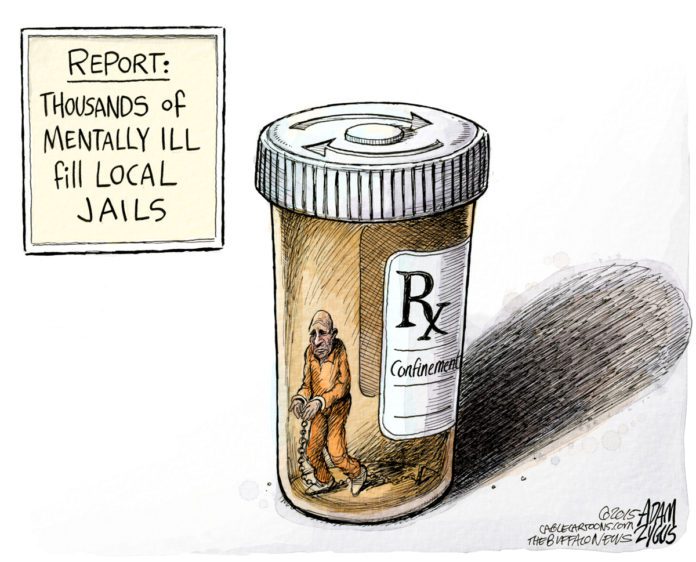BY DAVID PERRYMAN
 Jimmy Stewart’s 1950 portrayal as Elwood P. Dowd featured a carefree and kind man whose best friend was Harvey, a 6-foot, 3½-inch rabbit. The movie was a humorous approach to mental illness, sanatoriums and the somewhat frightening methods of treatment available 65 years ago.
Jimmy Stewart’s 1950 portrayal as Elwood P. Dowd featured a carefree and kind man whose best friend was Harvey, a 6-foot, 3½-inch rabbit. The movie was a humorous approach to mental illness, sanatoriums and the somewhat frightening methods of treatment available 65 years ago.
Unfortunately, Oklahoma has some of the highest rates for mental illness and substance abuse disorders in the country, and it is not a comedy. According to Terri White, Oklahoma Mental Health and Substance Abuse Commissioner, Oklahoma is No. 2 in the nation in the number of adults struggling with mental illness.
Mental illnesses are often intertwined with other serious health issues such as obesity, smoking, alcoholism and other types of substance abuse. The stigma of mental illness has resulted in decades of untreated citizens and a consequential under allocation of resources.
In Oklahoma, more than one in five people [22.4%] are affected with some level of mental illness and nearly one in eight [11.9%] have substance abuse disorders at any given time. According to the website of the Oklahoma Department of Mental Health and Substance Abuse Services, only 195,000 of the between 700,000 and 950,000 Oklahomans who needed treatment actually received services in FY15.
The Henry J. Kaiser Family Foundation reports that while the rest of the country spends $120.56 per capita to treat mental health disorders, Oklahoma is spending less than half that at $53.05 per capita. Decades of ignoring these needs means six out of 10 adults who need treatment do not receive it and consequently, Oklahoma’s incarceration rates are among the highest in the country, we have an exorbitant demand for foster care and our rate of adults reporting serious thoughts of suicide is fifth highest in the nation.
As Oklahoma’s economy worsens, demands for services rise. In February, the front of the Journal Record carried the headline, “Someone’s Going to Get Hurt.” The article by Brian Brus observed the direct link between bad economic conditions, young unemployed males who lack parenting skills and the incidence of non-accidental trauma to infants and children. Sadly, economic downturns mean decreased tax revenue and cuts to social service programs just as the need for those programs escalates.
In a 2013 Oklahoma Watch interview, Commissioner White stated that her biggest worry was the treatment gap of hundreds seeking services every day and no resources available.
Commissioner White stated, “If the goal is to shrink government and spend less … put the dollars here. We can save you money in corrections, we can save you money in uncompensated health care, we can save you money in foster care. When mental illness and addictions are treated, people live full and productive lives. They have families. They run companies. They can do anything when they have treatment.”
The cost of treatment is less than $2,900 per year while the cost of jail, prison or foster care is seven to 10 times that amount as reported on the department’s website in its FY16 budget request.
Instead, budget cuts of $22.8 million have resulted in the loss of over $17 million in federal matching dollars. That $40 million hole has directly affected the availability of services to more than 73,000 Oklahomans. Deeper cuts are expected next year.
The treatment sought for Elwood P. Dowd by his sister, Veta, was not for his benefit, but so that his somewhat eccentric behavior would not interfere with her social status. When the stigma is gone, so is the shame. In the nick of time, Veta realized the true value of a kind, loving and carefree brother.
Awareness is the key. In 2005, the television shows Huff, Monk, Scrubs and ER all won Voice Awards from the Substance Abuse and Mental Health Services Administration for their portrayal of people who manage mental health conditions.
Mark Twain’s observation that a jail is needed every time we close a school is equally applicable when we refuse to properly fund treatment for mental illness and substance abuse.
David Perryman, a Chickasha Democrat, represents District 56 in the Oklahoma House.








